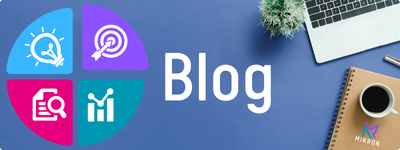
Using AI to transform Project Delivery
AI has huge potential for transforming project delivery, especially in areas like planning, risk management, and resource allocation. If you run a project delivery function or service within your business, you’re likely already aware of some of the inefficiencies in traditional approaches—AI can help tackle many of them.
Using artificial intelligence technology to optimise and streamline the process of delivering a project, primarily by analysing large amounts of data to predict potential issues, improve resource allocation, automate repetitive tasks, and provide data-driven insights for better decision-making throughout the project lifecycle, ultimately leading to faster and more efficient project completion.
Here are a few key areas where AI can make a big impact

Predictive Analytics for Risk Management
AI can analyse historical project data to identify risks before they become major issues. Machine learning models can predict delays, cost overruns, and resource bottlenecks, allowing teams to take proactive action.
Automated Project Planning & Scheduling
AI-powered tools can generate project schedules based on constraints, dependencies, and available resources. Dynamic scheduling engines can adjust plans in real time when conditions change.
Intelligent Resource Management
AI can optimise workforce allocation by matching skills to tasks, balancing workloads, and forecasting resource needs. This helps prevent burnout and ensures the right people are working on the right tasks.
AI-driven Decision Support
Project managers can use AI-driven dashboards that provide data-driven insights, highlight bottlenecks, and suggest corrective actions. AI-powered assistants can even answer questions about project status and risks.
Automated Status Reporting
AI can analyse team communications, task progress, and project documentation to generate real-time status reports. This reduces the time spent on manual reporting and improves transparency.
Chatbots & Virtual Assistants
AI-powered chatbots can handle common project management queries, assist with onboarding, and even remind team members of deadlines or pending tasks.
Document & Knowledge Management
AI can help categorise, summarise, and extract insights from project documents, making it easier to find and reuse past knowledge for future projects.
Challenges & Considerations
While AI has enormous potential, some challenges include:
- Data Quality & Availability – AI needs high-quality project data to be effective.
- Change Resistance – Teams may be hesitant to trust AI-driven decisions.
- Integration with Existing Tools – AI solutions need to work with legacy project management systems.
- Ethical & Bias Issues – AI models must be trained to avoid reinforcing biases in decision-making.
Modular Framework and leveraging existing AI Platforms
A modular framework could work well, where different AI capabilities (predictive analytics, automation, NLP, etc.) can be integrated as needed. This way, clients can adopt AI at their own pace while still seeing value early on.
Leveraging existing AI platforms can speed up adoption and reduce costs, while proprietary tools can give you a competitive edge with custom solutions tailored to client needs.
What about a hybrid approach?
A hybrid approach could look like:
- Existing AI Platforms – Using tools like Microsoft Copilot for automation, OpenAI for NLP/chatbots, and Google AI for predictive analytics.
- Proprietary AI Solutions – Custom models for project risk prediction, resource optimisation, or intelligent reporting dashboards.
- Seamless Integration – Ensuring AI tools work within existing project management systems (Jira, MS Project, etc.).
We have developed core frameworks for implementing AI.
Whether you are a technology focused business or simply wish to explore the benefits of AI for general project delivery, we can help.
Contact us for more information and an initial assessment.
